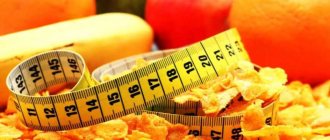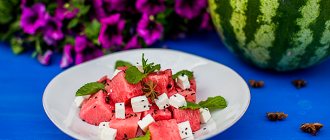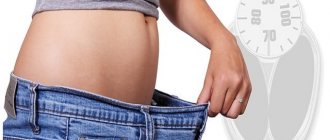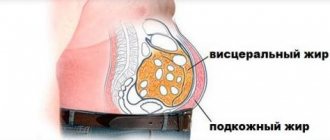A diet is a temporary restriction on food for the purpose of health improvement and weight loss. Many girls went on a diet, but not all achieved success in this matter. Are you asking how to maintain weight? Today in this article you will find out the answer to your question, namely how to easily maintain weight.
Some people give up without getting results, others brought this endeavor to an acceptable result, but a little later the weight returned again. And the shorter the diet, the faster you gain weight after it. What is the problem here?
( Also read: Diet breakdown: what to do?).
Eating high-calorie foods
One of the main nutritional mistakes is to lead your normal lifestyle immediately after stopping the diet. The body needs an average of 6 days to switch from one diet to a new one. You just need to endure this time on a diet:
- refusal of usual food;
- feeling of hunger;
- desire to break diets;
- small indulgences (just a quarter of a bun, a small portion of spaghetti... etc).
If you can withstand 6 days without relaxation, you can easily switch to a new regime, it will no longer cause inconvenience. And that's great! Good diets that help you lose weight last from a couple of weeks to a couple of months and are effective.
As soon as you have completed the diet period, you should not immediately break down and start eating your usual food. The logic in such cases is simple - I’ll eat a little of this, a little of that, I’ve been on a diet for 2 months already - nothing will happen.
Indeed, it’s okay if you sometimes allow yourself something tasty and high in calories, but definitely not often. This will quickly reduce the effect of the diet to zero.
The body has learned to live in conditions of a calorie deficit (small or large), and now it will begin to make “reserves” of fat with a vengeance.
After the diet, you should very gently and gradually include new foods in your diet. Spread this process over 1-2 weeks. It may be better to give up some things (potatoes, rice, white bread, pastries); you shouldn’t eat a lot of these foods right away.
What are the dangers of fast diets?
However, there are quite strict diets that still allow you to lose weight quickly. But! A weight loss of more than 10% per month is a severe blow to the body. The skin becomes sagging and does not have time to tighten itself. And, instead of the long-awaited rejuvenation effect, we get the opposite effect.
In addition, internal organs also sag; they change their usual position due to the fact that those fat reserves that are inside, and not just under the skin, melt.
First of all, intraperitoneal tissue loses weight. This leads to impaired kidney function. The optimal rate of weight loss is 5-6% of body weight per month. That is, if you weigh 80 kilograms, then a completely good and safe result for your health will be a weight loss of up to 76 kilograms. To get this result, you don’t have to “go on a diet.”
To lose weight in the amount of 5-6% of body weight within a month, it is enough to do the following: Analyze your usual diet for sufficient vitamins and minerals in your food.
Very often, the body, which does not receive enough vitamins and minerals, gives us a signal about this in the form of a feeling of hunger.
Metabolic slowdown
It’s a paradox, but the more you weigh, the faster your metabolism. The body has to burn a lot of calories to move around at significant weight, and when you lose weight, your metabolism slows down. The body quickly gets used to new conditions and adapts. This is one of the conditions for survival.
Once upon a time you ate 2000 calories a day and gained weight, and then lost weight during the diet to 1300-1500. During a deficit, the kilograms go away, but after a certain period of time we get used to eating this way and getting enough energy.
And then, at 1500 calories, we get fat again. It is impossible to lower the threshold all the time - this is dangerous for health and life. But you can speed up your metabolism:
- sport;
- an active lifestyle (a walk in the park instead of lying on the couch on the weekend, a walking tour of the city on the weekend rather than sitting in a bar, a 1-day trip to nature rather than sitting on computer games);
- products that speed up metabolism (ginger tea, citrus juice).
Then you can maintain the weight you like, and you won’t have to constantly go on diets.
How to maintain weight after a strict diet?

Calculate exactly the right amount of calories for you and subtract 300–500 calories from this figure. Eat healthy foods to avoid feeling hungry. You will not lose weight very quickly, but the process of losing weight will be easy. Always go shopping well-fed, and only take products according to the list. You must love yourself and not put special emphasis on food. Instead, treat yourself in other ways: buy yourself a new lipstick, go to the movies, or go to a beautiful place.
Finally, I want to summarize how to maintain weight after a diet. Firstly, carefully monitor your diet and count calories, and secondly, you should eat less or add physical activity. Either way, you should eat less and spend more. We wish you to maintain your ideal weight for a long time!
( Also read: Which diet is better to avoid?).
Old habits
We decided to lose weight and gave up:
- sweet;
- flour;
- white dough;
- sweet drinks;
- overeating;
- passivity;
- junk food, fast food.
Don't go back to old habits. Let this be a thing of the past. After all, soda can be replaced with freshly squeezed juice, white can be replaced with integral bread, sweets with fruits and dried fruits. Even milk chocolate (yes, a lot of calories and sugar) is replaced with bitter chocolate, which is no less tasty.
Or it’s a big mistake to return to large portions after the body has become accustomed to small ones. There is good advice - take a smaller plate, because a small portion looks dull on a large one. And if you take a small one, even a small portion will look organic. This is a part of psychology, but it’s easier to get used to reducing the amount of food.
How to eat less and feel more full?
Many people are familiar with this feeling: you seem to be full, but you still want something. This feeling of dissatisfaction with food is often a signal that the food is poor in essential elements and vitamins. Make sure you are drinking enough water.
It is believed that you should drink so much water per day that for every kilogram of body weight you get 30 ml (clean, unboiled water, not coffee, compote and milk!)
However, the amount of water we drink depends on what kind of food we eat. If we give preference to fresh vegetables, eat first courses, and drink less. If your diet contains few fresh vegetables, a lot of fatty and spicy foods, the body will require more water. Very often, a lack of water makes itself felt in the form of a feeling of hunger. Drinking a glass of water 20-30 minutes before a meal will help you feel full with less food.
You should slightly reduce the amount of salt and sugar you consume. They are powerful flavor enhancers. We eat much more salty and sweet food than we would eat if it was slightly under-salted and under-sweetened. Quitting alcohol (or drinking less often) will also allow you to eat less food.
Alcohol turns off certain centers in the brain that control appetite and send signals about satiety. Banish Pepsi, Cola, and Fanta from your diet once and for all! They completely lack useful substances, but they contain a lot of harmful preservatives and acids, as well as a huge amount of calories. In particular, to prepare 1 liter of Fanta, about 25(!) teaspoons of sugar are used.
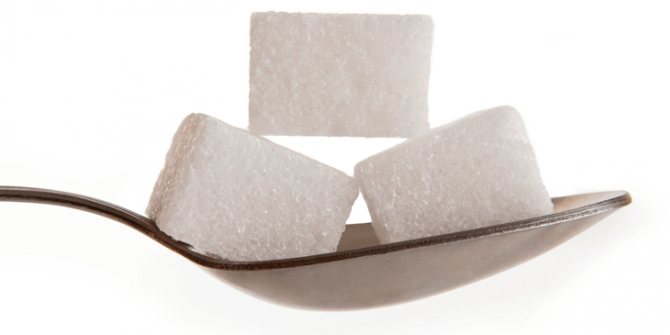
Introduce more fiber-rich foods . This refers to fresh fruits, vegetables, grain bread, cereals. Eat as many natural products as possible. Spreads with relatively low fat content are more harmful than natural butter.
Increase physical activity . At a minimum, do morning exercises. This will speed up your metabolism. And most importantly: to prevent weight gain, the number of calories consumed must be equal to the number of calories burned.
If the goal is to lose weight, then, accordingly, you should spend more energy than you get from food. It’s better to give up prohibitive mental attitudes like: I can’t have sweets, I don’t eat cakes. It is known that the forbidden fruit is the most desirable. The more strictly you forbid yourself something, the more you want it.
Cause of excess weight
Most people think that excess weight is the result of eating too many junk foods and not enough exercise, says David Carpenter, director of the Institute for Health and the Environment at the University at Albany.

However, recent studies, including this one, show that exposure to certain chemicals found in food and water may also contribute to obesity. “Obesity and the chemicals that increase its risk are a serious health problem,” Carpenter said.

While more research is needed to examine these chemicals, scientists note that people should be cautious about using products that contain PFAS.
Found a violation? Report content
Distended stomach
Often those who are losing weight during a diet try to deceive their stomach by pouring water or kefir into it to relieve the feeling of hunger. This behavior does not bring positive results, as the stomach stretches. After a diet, the feeling of hunger begins to haunt you and the desire to get enough of something harmful appears.
To avoid stretching the stomach, you need to distribute meals over several meals and limit the amount of food consumed. For example, choose a small plate for yourself and eat an amount of food equal to the volume of the dishes every 3-4 hours.
Three reasons why people gain weight again after losing weight
Any experienced loser will tell you: losing a couple of kilos is not so difficult. But to keep your waistline later... It’s just a horror film “Extra kilos: sometimes they come back.” According to medical statistics, only 13% of people who lose weight do not gain it back within a year. Here are three main reasons for the ineffectiveness of getting rid of extra pounds:
1. “Dietary depression” - stress that occurs against the background of overly restrictive, unbalanced weight loss programs, mono-diets (the only joy that occurs is deprivation of the only joy, protection from worries, because for almost 60% of women with weight problems, food is the main way to gain peace of mind ).
2. “Standing point” - a compensatory slowdown of the basal metabolism, a mode of more economical calorie consumption. This is expressed in a temporary cessation of weight loss, despite correct and active weight loss measures. This is the problem with many quick weight loss programs that promise a loss of more than 5-7 kg per week. This problem can be overcome by using a consistent and long-term weight loss program.
3. “Yo-yo effect” - relapse, “ricochet” weight gain (you know, a yo-yo is such a children’s toy - a ball on a string: it either unwinds or jumps up). Occurs when the body quickly loses kilograms, which is stressful for the body. As a reaction to stress, appetite increases and a person gains even more weight.
Therefore, to effectively lose and maintain weight, it is necessary, firstly, to consult with specialists:
- nutritionist,
- endocrinologist,
- physiologist.
And secondly, a set of measures that helps break down fats, and not reduce appetite.
Is it possible to find some kind of algorithm for maintaining weight after losing weight? A group of nutritionists and endocrinologists led by Professor Arne Astrup from the University of Copenhagen took up this issue closely.
More than 900 adults and 800 children from eight European countries were recruited to participate in the study. Volunteers were on different diets for six months. As a result, it turned out that in order not to gain weight after losing weight, you need to eat foods with a lot of protein and a low glycemic index (an indicator that determines changes in blood sugar levels).
The experiment participants who ate such dishes ended up on average 2 kilos lighter than the control group, which ate foods with a high glycemic index.
The optimal range of weight-saving foods includes lean meats, low-fat dairy products, citrus fruits, and fresh or steamed vegetables. But it is better to avoid white bread and white rice.
With a low glycemic index, carbohydrates are slowly converted into glucose, and you feel fuller.
Experts believe that after a weight loss course, in order to consolidate the results, you should stick to approximately the same diet.
Sample menu for those who have lost weight
BREAKFAST. Low-fat milk with muesli or oatmeal (any variety - but without sugar), a sandwich made from a piece of whole grain bread with low-fat cheese. Plus an orange or a glass of orange juice.
DINNER. A serving of lean beef, veal or chicken (150-200 grams) with brown or wild rice, buckwheat or a slice of whole grain bread. Or fish in tomato sauce with vegetables.
DINNER. Stewed or baked turkey with vegetables, some durum wheat pasta. And a salad with avocado, feta cheese and lettuce.
Let's summarize
These steps should not be a temporary measure. Such a power system should become common. In this case, weight loss will occur quite slowly but steadily. Moreover, fat from the hips, abdomen and waist will not begin to disappear first. And that's okay.
Recent studies by English physiologists have proven that not a single diet is effective for women over 35 years of age . All diets, if they have an effect, are short-term. The faster the weight is lost, the faster it returns, and even “with interest.”
There is only one way out - to gradually change your nutrition system in accordance with the points listed above.
Weight stability (periodic fluctuations within 2-4 kg are acceptable) is a very good indicator. It speaks of the stability of the body and the relative health of a person. It is considered ideal if you manage to maintain throughout your life the weight you had at 18-20 years old.


